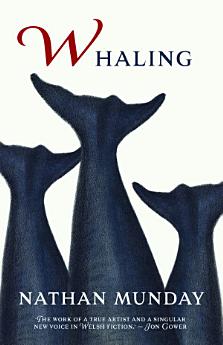Whaling
মে ২০২৩ · Seren
ই-বুক
224
পৃষ্ঠা
family_home
উপযুক্ত
info
reportরেটিং ও রিভিউ যাচাই করা হয়নি আরও জানুন
এই ই-বুকের বিষয়ে
1792. Nantucket whalers are invited to found the port of Milford Haven in Wales. What does the arrival of these hardy Quakers – immigrants to America a century before – mean for the local people? And what is the meaning of the beached whale that preceded them? Two cultures rub against each other and distrust grows, driven by the local preacher. As Whaling unfolds concern swerves into hysteria against the incomers and the preacher plans a grotesque, Jonah-inspired fate for the whalers. Nathan Munday's debut novel is an exciting mélange of original fiction, historical writing and whaling images. In it he explores our relationship with the natural world, the boundary between faith and superstition, and the age old problem of immigration. Set in historical fact this is a narrative at once modern and contemporaneous, the writing rich in imagery and deceptively tense as its story slides into allegory.
লেখক সম্পর্কে
Nathan Munday is a young writer from Carmarthenshire who lives near Bridgend. He won the M Wynn Thomas New Scholar’s Prize in 2016 for an essay on RS Thomas, and was second in the New Welsh Review Writings Awards for Seven Days: A Pyrenean Adventure (Parthian, 2017). Until recently he was guardian of Ty Mawr Wybrnant, the Snowdonian birthplace of Bible translator William Morgan. He has published stories, poems and reviews in a variety of magazines, including Cheval, Wales Arts Review, and New Welsh Review. He has a website, https://nathanmunday.com/blog/ and is bilingual. Nathan is a trainee minister.
ই-বুকে রেটিং দিন
আপনার মতামত জানান।
পঠন তথ্য
স্মার্টফোন এবং ট্যাবলেট
Android এবং iPad/iPhone এর জন্য Google Play বই অ্যাপ ইনস্টল করুন। এটি আপনার অ্যাকাউন্টের সাথে অটোমেটিক সিঙ্ক হয় ও আপনি অনলাইন বা অফলাইন যাই থাকুন না কেন আপনাকে পড়তে দেয়।
ল্যাপটপ ও কম্পিউটার
Google Play থেকে কেনা অডিওবুক আপনি কম্পিউটারের ওয়েব ব্রাউজারে শুনতে পারেন।
eReader এবং অন্যান্য ডিভাইস
Kobo eReaders-এর মতো e-ink ডিভাইসে পড়তে, আপনাকে একটি ফাইল ডাউনলোড ও আপনার ডিভাইসে ট্রান্সফার করতে হবে। ব্যবহারকারীর উদ্দেশ্যে তৈরি সহায়তা কেন্দ্রতে দেওয়া নির্দেশাবলী অনুসরণ করে যেসব eReader-এ ফাইল পড়া যাবে সেখানে ট্রান্সফার করুন।





